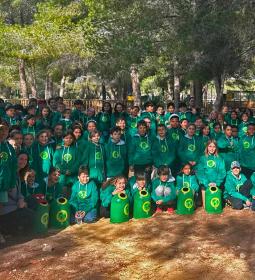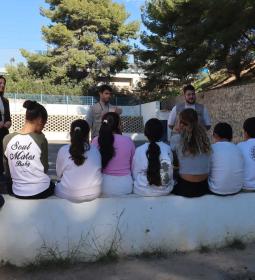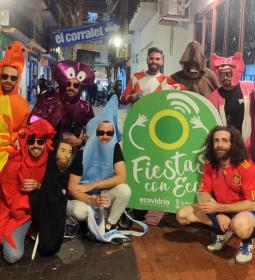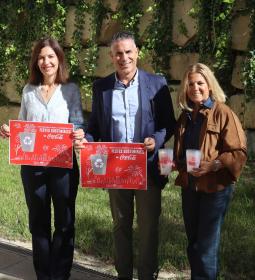Health and Environment estimate that about 150 specimens will be treated and that in a maximum of five years all the colonies will be controlled
Benidorm receives a grant from the Provincial Council of more than 10,000 euros to sterilize colonies of stray cats

Benidorm City Council has received a grant from the Provincial Council of Alicante of 10,252.50 euros to perform sterilization treatments of urban colonies of cats without an owner, as reported today by the councilors of Health and Environment, Ana Pellicer and José Ramón González of Zárate. Both have remembered that it is the second year that the City Council obtains this subsidy - in 2017 the Provincial Council granted Benidorm with 8,314.12 euros - and the third in which a municipal campaign is developed to control the colonies of cats.
Pellicer explained that the College of Veterinarians of Alicante and the technicians of the areas of Health and Environment "estimated that this year it will be able to sterilize about 150 cats", a number that follows the line of previous years. Specifically, in 2017 the municipal campaign ended with "the sterilization of 147 cats, of which 84 were females and 63 were males".
The head of Health moved that, according to the calculations of veterinarians, "the total colonies" of cats without an owner "will be controlled in four or five years if we continue with these sterilization campaigns." About the number of colonies, Pellicer pointed out that last year "there were 21", although the number grew "in places where there is uncontrolled feeding". In this regard, the councillor of Environment recalled that the municipal ordinance "prohibits feeding animals on public roads."
The Councilor for Health, meanwhile, clarified that this campaign, which will start from September and will last for four months, is focused on "the colonies of cats that inhabit the public road." "The colonies that are within communities of owners are not included, where the responsibility would be for each of these communities."
About the procedure that is followed to apply the treatments, Pellicer explained that "the cats are picked up by a professional, introduced in cages and transferred to the veterinary clinics that collaborate with the campaign," six in total. Once in the clinics, "they are sanitized and controlled sanitarily". Later, after being vaccinated against rabies "they are reintroduced into their colony."
De Zárate highlighted "the good work that is being done from the area of Health and Environment", and added that "we have taken seriously the sanitary control of these animals." The councillor remembered that "prior to the implementation of this campaign in 2016, nothing was done" at the municipal level and only sterilized cats without owner which were collected by the Society for the Protection of Animals and Plants.
The Councilor for the Environment has called on citizens to inform the City Council about the existence and location of urban colonies of cats, so that they can be sterilized and sanitary controlled to ensure that these animals that inhabit the public road do not have diseases.
Finally, De Zárate recalled that the City Council also performs a control over the populations of pigeons and seagulls.




